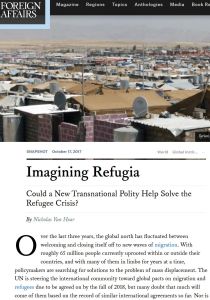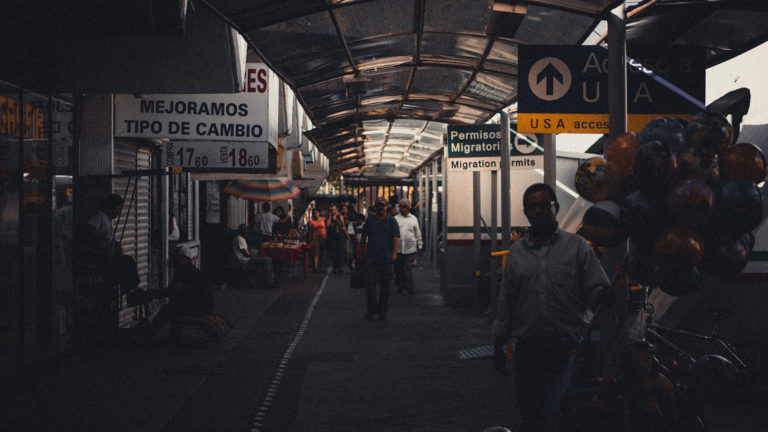Melden Sie sich bei getAbstract an, um die Zusammenfassung zu erhalten.

Melden Sie sich bei getAbstract an, um die Zusammenfassung zu erhalten.
Nicholas Van Hear
Imagining Refugia
Could a New Transnational Polity Help Solve the Refugee Crisis?
Foreign Affairs, 2017
Was ist drin?
Mass displacement has overwhelmed the international community – why not allow refugees to govern themselves?
Recommendation
Today, over 65 million displaced people reside in temporary living spaces both within and outside their home nations. Yet individual countries and international organizations alike struggle to garner the resources and political will to find satisfying solutions to this crisis. Therefore, argues Nicholas Van Hear of the University of Oxford, it's time to help refugees help themselves. In an essay in Foreign Affairs, he proposes the creation of a transnational polity, dubbed “Refugia,” which would give refugees the opportunity to rebuild their lives.
Summary
About the Author
Nicholas Van Hear is the Deputy Director of University of Oxford's Centre on Migration, Policy, and Society (COMPAS).


















Comment on this summary